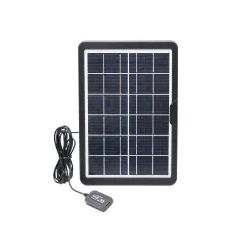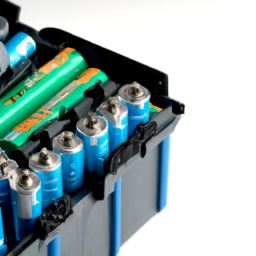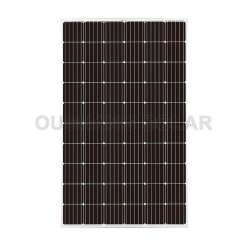ESS Module Bi-Directional AC/DC Module
Power conversion systems are devices that convert the electrical power generated by a renewable energy source, such as solar or wind, into a form that can be used for different applications. These systems include inverters, transformers, converters, and other components that are essential to make the energy produced by renewable sources suitable for use in residential, commercial, or industrial.
Product Description
Introduction to Power Conversion System
Power conversion systems are devices that convert the electrical power generated by a renewable energy source, such as solar or wind, into a form that can be used for different applications. These systems include inverters, transformers, converters, and other components that are essential to make the energy produced by renewable sources suitable for use in residential, commercial, or industrial applications. In this article, we will explore the features and functions of power conversion systems, their advantages and disadvantages, and the technology behind their production.
Features and Functions of Power Conversion System
The main function of a power conversion system is to convert the DC electricity produced by a renewable energy source into AC electricity that can be used for various applications. Additionally, power conversion systems also provide protection against overvoltage, overcurrent, and other risks that may occur in the electrical network. Power conversion systems often include energy storage systems, which can store excess energy and release it when needed, ensuring that there is a constant supply of electricity.
Advantages of Power Conversion System
One of the primary advantages of a power conversion system is its ability to make renewable energy sources more practical for daily use. The system ensures that energy produced by renewable sources can be effectively harnessed and used for a variety of industrial, commercial, and residential applications. Additionally, power conversion systems are designed to be efficient, flexible, and easy to install. They also help to reduce the environmental impact of energy generation by reducing carbon emissions and other pollutants.
Disadvantages of Power Conversion System
One of the main disadvantages of power conversion systems is their cost. The high cost of components like inverters and transformers can add significantly to the overall cost of setting up a renewable energy system. Additionally, some components of a power conversion system may require regular maintenance and replacement. Power conversion systems also require adequate space and may not be suitable for use in all regions or applications.
Technology Behind Power Conversion System
The technology behind power conversion systems is complex and constantly evolving. Power conversion systems must account for the variability of renewable energy sources, which can be affected by weather conditions and other factors. Components of a power conversion system, such as inverters, use power electronics to control the output voltage, current, and frequency. The controllers of these systems use algorithms to manage the flow of energy within the system efficiently. Advances in computer technology have also led to the development of predictive models and simulation software that can optimize the performance of power conversion systems.
Conclusion
In conclusion, power conversion systems play a crucial role in converting energy from renewable sources into usable electricity for daily use. While they may have a high initial cost, they have many advantages, including improved energy efficiency, reduced carbon emissions, and increased energy independence. As technology continues to advance, power conversion systems will likely become more efficient, reliable, and affordable, making renewable energy an increasingly practical and environmentally-friendly option for energy generation.











FAQ
1. What is a power conversion system?
A power conversion system is a device or a set of devices that convert electrical energy from one form to another. This can include converting voltage levels, current levels, frequency, and other characteristics of electrical power.
2. Why do I need a power conversion system?
Power conversion systems are essential in many applications where electrical power needs to be transformed or modified for specific purposes. For example, they are used in renewable energy systems to convert the energy generated by solar panels or wind turbines into usable electricity, in motors and drives to control the speed and torque of electric motors, and in power supplies to regulate the output voltage of electronic devices.
3. What are the different types of power conversion systems?
There are several types of power conversion systems, including:
- DC-to-DC converters: These converters change the voltage level of direct current (DC) electrical power. They are commonly used in batteries, fuel cells, and other low-voltage power sources.
- AC-to-DC converters: These converters change the voltage level of alternating current (AC) electrical power to direct current (DC). They are commonly used in renewable energy systems and battery chargers.
- DC-to-AC inverters: These converters change the voltage level of direct current (DC) electrical power to alternating current (AC). They are commonly used in motor controllers and renewable energy systems.
- AC-to-AC converters: These converters change the frequency, voltage level, or phase angle of alternating current (AC) electrical power. They are commonly used in variable frequency drives and uninterruptible power supplies (UPS).
4. How do I choose the right power conversion system for my application?
Choosing the right power conversion system depends on several factors, including the type and amount of electrical power you need to convert, the required output voltage or current, the efficiency, reliability, and cost of the system, and any special requirements such as isolation or cooling. It is recommended to consult with an experienced electrical engineer or supplier to determine the best solution for your specific needs.
5. Do power conversion systems require maintenance?
Yes, power conversion systems require regular maintenance to ensure their proper functioning and longevity. This may include cleaning, inspection, testing, and replacement of components such as capacitors, transformers, and semiconductor switches. It is important to follow the manufacturer's recommendations for maintenance and perform routine checks to detect any potential issues before they cause serious damage or failure of the system.
Email: info@sinetengpower.com
Mob.: +86 180 0271 1926
Tel.: +86 769 8189 3996
Fax: +86 769 8189 3056
WeChat: sinetengpower
Skype: https://join.skype.com/invite/gKmB3C3QISWd
Whatsapp: +8618002711926
Whatsapp: +8615362492169
Whatsapp: +8618002715526
Add.: Building 4, No. 5, Ma Wu Industry Road 2, Changping Town, Dongguan City, Guangdong Province









